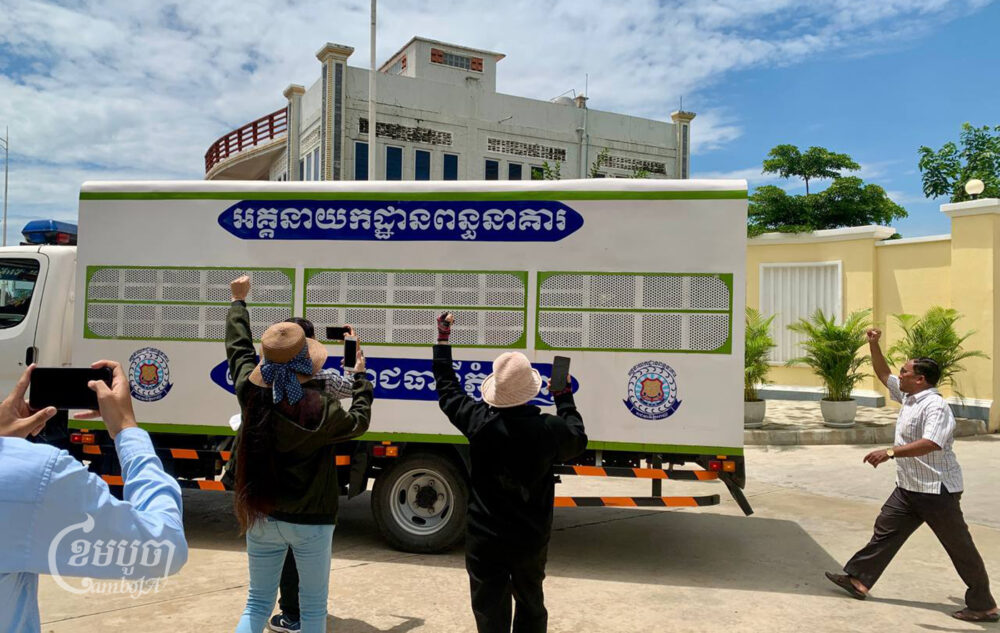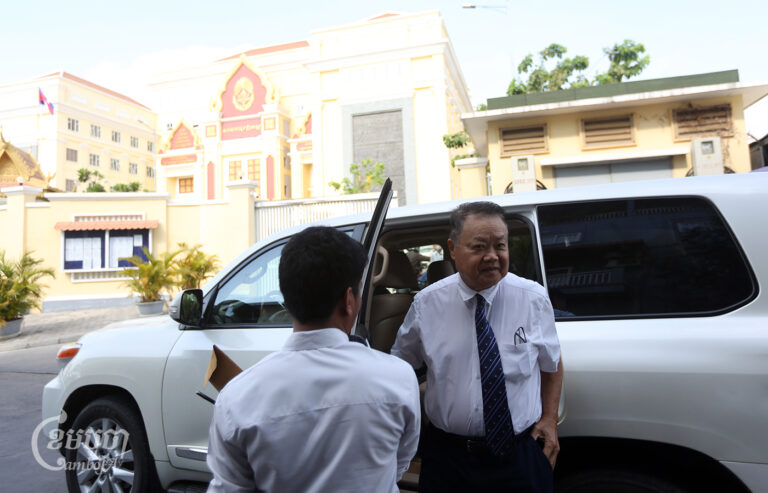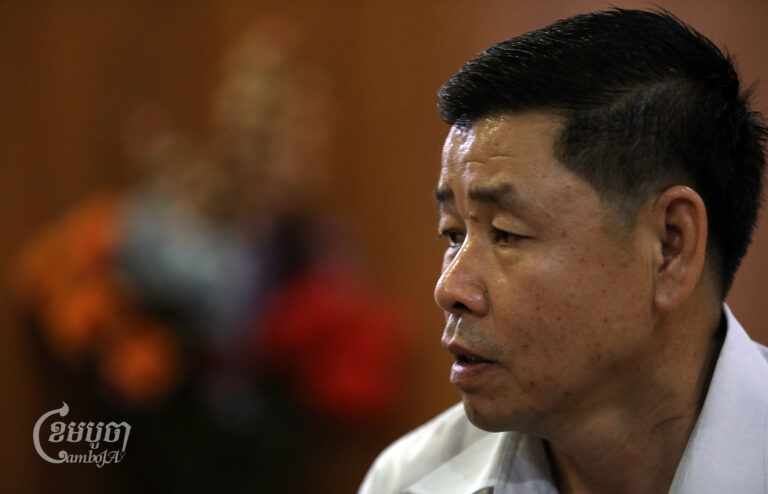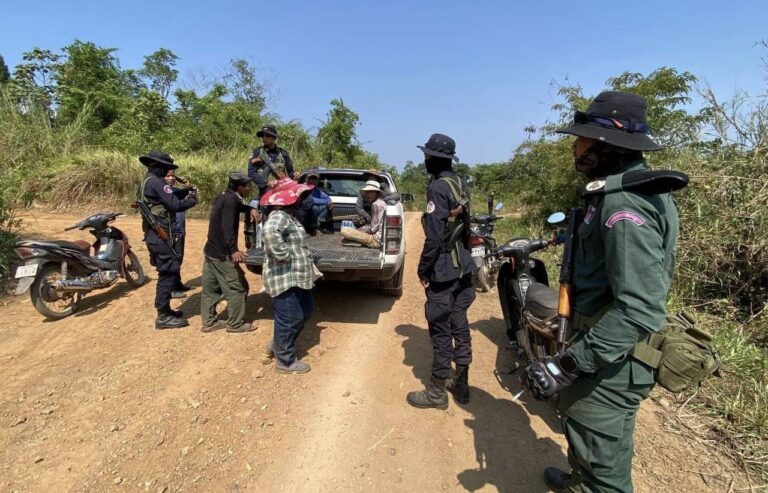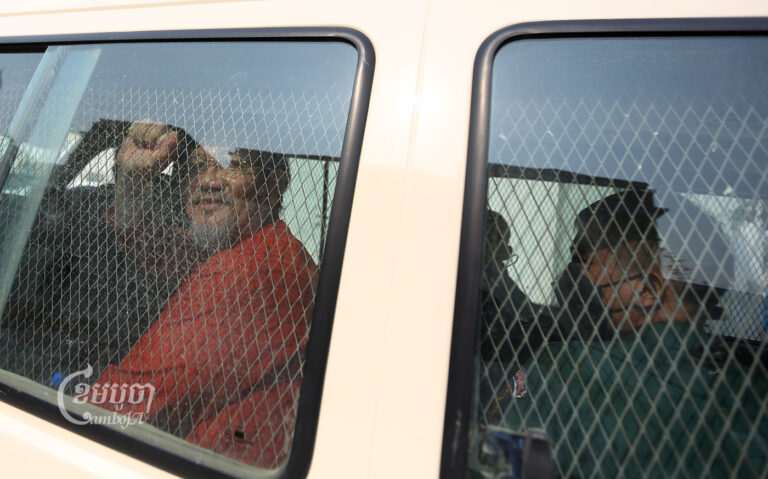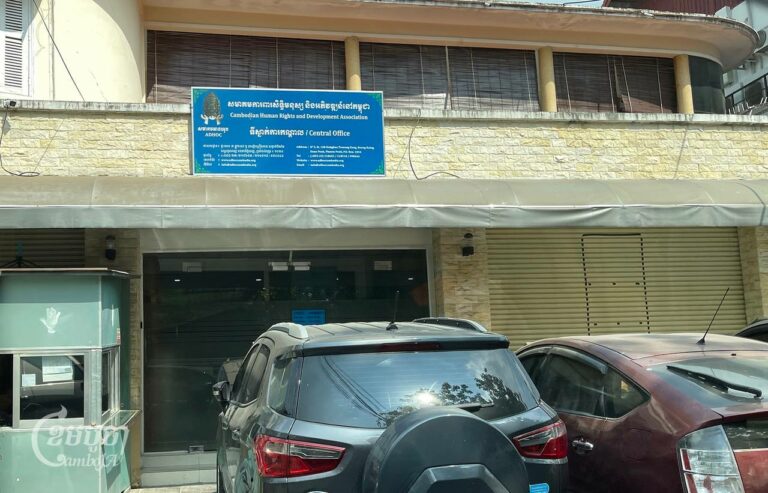The Phnom Penh Municipal convicted Candlelight Party Co-Vice President Thach Setha last Thursday of issuing bad checks and sentenced him to 18 months in prison. He also was questioned on incitement charges in a separate, ongoing trial based on critical statements about the January 7 anniversary of the fall of the Khmer Rouge regime.
Handing down the verdict in Setha’s bad checks case, judge Chhun Davy fined Setha 3 million riel and ordered him to pay the plaintiff $33,400 in outstanding debt and an additional 5 million riel in compensation.
Setha was arrested in January for allegedly issuing five bad checks in 2019 and for failing to appear before an investigating judge in 2021 following a complaint filed by the recipient of the checks, Hay Vanrin, who owns the Rin Chhay. Vanrin has business ties to the ruling CPP and is listed as the co-director of a company alongside the wife of Prime Minister Hun Manet’s brother Hun Manith. Vanrin could not be reached for comment.
Setha denied all accusations and claimed he never issued the checks in 2019. He said he had only received $18,000 from the pawnshop owner and that the issue had already been resolved because he never authorized the bad checks.
Setha was convicted under article 231 of the Law on Negotiable Instruments and Payment Transactions.
Defense lawyer Son Chum Chuon expressed disappointment with the court’s ruling and said he as is discussing an appeal with Setha.
“Based on evidence that we had debated [at trial] there is not enough evidence for prosecution of my client,” he said.
However, one of the plaintiff’s lawyers, Tim Sopheap, welcomed a decision of the court, especially the order for Setha to pay back her client’s loan.
“I do not have any comment because it is the discretion of the judge [to determine] that there is enough reason to determine the offense was stipulated in the law,” she said. “We can accept that the court has ordered the defendant to pay back my client’s loan and compensation.”
Candlelight Party Co-Vice President Rong Chhun said Setha’s conviction is an injustice and noted that the issue of the bad checks had already been resolved.
“We have seen that the case is linked to politics rather than to the law enforcement,” he said.
Setha’s wife, Thach Sokborany, echoed Chhun’s statements and proclaimed her husband was innocent of wrongdoing.
“The court didn’t show [original] evidence, they have accused him based on a copy of the check, for arresting him, it is very unjust,” she said, calling on the court to immediately release her husband.
Human rights NGO Licadho’s operations director Am Sam Ath said that Setha’s conviction will lead to more criticism from national and international observers, who would view the case as politically motivated.
“It is politically motivated because we have seen that this conviction does not seem strange compared to the previous outcomes for activists and politicians [facing court charges],” he said.
Setha is also facing charges of incitement to disturb security and public order after posting on January 13 a video clip from Youtube which makes critical comments about the fall of the Khmer Rouge regime on January 7, when the Vietnamese army invaded Cambodia.
Deputy prosecutor Seng Heang interrogated Setha and claimed he had broadcast political messages attacking the government in the run-up to July’s national elections.
“[We] considered that the defendant has ill-intentioned propaganda as an image politician to burn the anger of people to hate the government,” Heang said.
He requested Davy, the judge also overseeing this case, to prosecute Setha under articles 494, 495 and 496 of the criminal code. A verdict is scheduled for October 18.
Setha said that January 7 represented the creation of the ruling CPP and wanted people to understand this and protect Cambodia’s land.
“Speaking [history] has no intent to incite racial discrimination or cause to disturb security but has the purpose of making Khmer people understand history, especially Cambodia-Vietnam’s stupa was built in Cambodia everywhere,” he said.
“This is Khmer history, a politician can’t talk about it?” he asked. “And if I am in line with the CPP, I do not have to form a party. Why can’t we talk? Why can’t we learn?”


